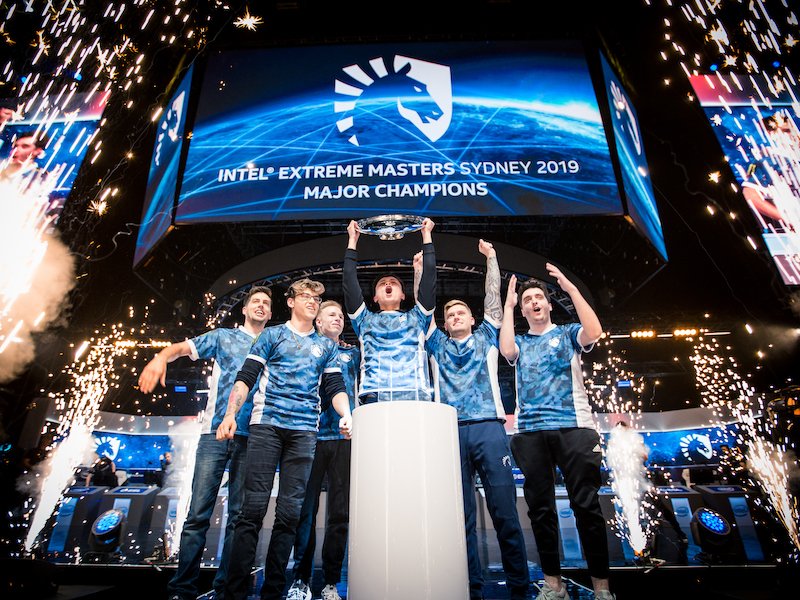Australia’s biggest esports event, the Intel Extreme Masters Sydney (IEM), went off with a bang over the past weekend as more than 7,500 fans on each of three days watched some of the world’s best esports teams battle for US$250,000 in prize money.
But the event faced logistical troubles, as one of the world’s best players was unexpectedly unable to make the trip because his Australian visa application was not processed in time.
The player, Nikola ‘NiKo’ Kovac, is a Bosnia and Herzegovina national and plays with one of the world’s top teams, FaZe Clan, who were the defending champions of the tournament. Mr Kovac was part of the successful team in 2018, so has been granted a visa previously.

“It was easier to get Niko into China than it was to get him into Australia,” Erik Anderson, head of esports for FaZe Clan, told InnovationAus.com.
“It just shouldn’t be that hard. Maybe there was something we did wrong, I don’t want to blame Australia, we love playing here and the fans here are amazing,” he said.
“But a lot of countries are now recognising esports professionals as athletes and making the visa clearance process very simple.”
Australian states are starting to see the event tourism value in esports, with Victoria and NSW playing host to annual tournaments that bring fans from around the country and overseas to see their idols on the big stage.
And the Australian events are rapidly building a reputation as having the most passionate and entertaining crowd experiences anywhere in the world.
But at the federal level there has been little government acknowledgement of the value of esports, nor of the games industry in general.
Esports easily falls between the cracks in the policy landscape. It is different from the core art and entertainment of game development and publishing that is represented by the likes of Interactive Games and Entertainment Association (IGEA), and it is not, or not yet, recognised within the sports environment.
We asked the ministers and shadow ministers of communications and sports for comments about this situation and their feelings on the esports industry, its importance in future and whether they felt it sits within their ministry remit or better sits elsewhere.
Of the four, Shadow Minister for Communications, Michelle Rowland, returned with a response.
“Esports is fast growing and has well and truly made its mark in Australia, despite our second-rate NBN. Australians love sports and are early adopters of technology, so esports brings these passions together,” said Ms Rowland in a statement sent to InnovationAus.com.
“Both esports and traditional sports are forms of entertainment as well as outlets for grassroots participation requiring skill, training and teamwork. Like the NBN, interactive games and applications cut across all portfolios in the economy, supporting outcomes in health, education, training and defence, as well as in the arts and sports, for example.
“It important that esports builds trust in Australia, with its community of users, professional players, sponsors and government. Esports needs to think cross-portfolio as it builds relationships with government.”
The games sector has grown to be larger than the film industry in global annual revenue, but the government has continually refused to offer incentives to games businesses based here in Australia in line with other screen media industries.
In the context of esports, it seems esports athletes are also yet to be seen in the same light as traditional sports athletes or as entertainers, creating a situation where it remains harder to get immigration clearance for players from some countries than others.
With Sydney’s IEM now part of a world circuit, the lead time between final qualification for a tournament and the tournament itself can become just a matter of weeks or even days.
“Australia needs to take a closer look at esports and how the current visa processes might limit the ability of legitimate star players gaining lawful access to high profile tournaments,” said ESL Asia Pacific managing director Nick Vanzetti, who runs the Intel Extreme Masters tournament and many others in Australia and around the world.
“Visa processing delays pose substantial risk to the teams, players and tournament organisers of being able to perform or operate as they should, and ultimately harm the business of esports and the country’s ability to attract world class events.”
The esports industry is now seeking to build organisations that represent the interests of this competitive landscape. The Esports Games Association Australia has been formed to act as a representative organisation for the wider esports ecosystem, and now represents over 350 members.
The next major esports event on the Australian calendar with international stars attending is Battle Arena Melbourne 11 which takes place May 17-19, followed by the Melbourne Esports Open returning for its second year on August 31.
Do you know more? Contact James Riley via Email.

